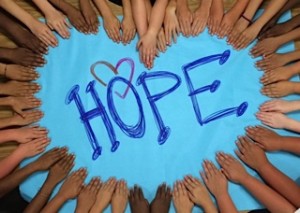Though it has been discussed many times publicly and privately, it bears repeating from time to time just so that people don’t forget. There are some thoughtless and inappropriate comments that people say to the bereaved because they:
A) Don’t know what to say
B) Don’t think about what they’re saying
C) Are uncomfortable with their own vulnerability
D) Just don’t understand. It is just not part of any experience they have ever had; therefore, they are unable to relate.
When the person closest to you dies, it is not only the loss of that loved one you’re grieving, it’s also the loss of your foundation, your rock, the person you turned to and leaned on – the loss of several relationships wrapped up in one. You have just suffered a psychological, physical, emotional and spiritual trauma. It devastates your whole world by turning it upside down and inside out. This is when you are at your most vulnerable point in life, reeling through shock, numbness, emptiness and terror. It is vital that you be allowed to have the space and freedom to feel the depth of your pain and sorrow.
Imagine if you were in this person’s shoes. The last thing you may want to hear during this time are comments such as:
- “I know exactly how you feel.”
- “It will be better tomorrow.”
- “Just let it go.”
- “God doesn’t give you more than you can handle.”
- “Well, at least you had the time that you had with her…”
- “It’s okay, he lived a long life.”
- “After that terrible long illness, you should be relieved she’s gone.”
- “It’s God’s will.”
- “He’s in a better place now.”
- “It’s been a year since your husband’s been dead, get over it already!”
- “Stop your moping!”
- “You’re such a downer being sad all the time that nobody wants to be around you.”
- “Are you dating yet? You have to get back out there and find someone else.”
- “When are you selling your house? Isn’t it too big for you now?”
This is a time when the griever’s faith, religion, relationship with their higher power or their spirituality is shaken and challenged to the extent that they are frozen. They don’t know what to feel, think or believe anymore. Even if you think you know through your own experience what it means for them to lose someone close to them, don’t presume to know what they’re experiencing. You can’t know exactly what they’re going through unless you are in their shoes. Grief is a solo journey that the bereaved must walk alone. Others may walk along with them and accompany them part of the way, however, the journey itself is theirs and theirs alone. THEY MUST GRIEVE IN THEIR OWN WAY.
The trauma of death is like an earthquake. The bereaved has to face the rubble of their shattered lives. If you’re at a loss as to what to say, imagine if you can, what they must feel. Don’t be a source of causing aftershocks and tremors by volunteering to come over to clean out the closets, to go through the personal effects of the deceased, to rearrange their furniture or get the house ready for sale. Worse yet, please don’t ask to buy the car that the beloved wife drove and, “Don’t Ask For The Dead Man’s Golf Clubs” (by Lynn Kelly).
Having compassion and empathy can go a long way to send powerful messages to the griever that:
- “I’m thinking of you and I want you to know I love you.”
- “Have no doubt that I’m here to support you and I won’t abandon you in your time of need.”
- Doing things such as:
- Bringing over meals
- Shopping for groceries
- Taking out the trash on trash day
- Doing laundry
- Running errands
- Paying bills
- Making phones calls
- Organizing a support team and delegating responsibilities helps the griever to function on a daily basis
- Sitting quietly
- Spending a night here and there because they don’t want to be alone in the initial weeks or months following the loss
Encouraging, but not pushing them to do the things necessary to help them take care of themselves such as eating, taking a shower, a walk, a nap or to just sit and cry while you hold their hand or hug them shows your ability to be in the presence of their pain and vulnerability.
It’s okay to cry with them, to be at a loss for words and just listen or to say, “I’m so sorry this is happening to you,” or simply, “I don’t know what to say…”
Empathy plays a huge role in representing hope to the bereaved; not necessarily that things will get better, but rather that you are there to support them; that you accept and understand their suffering and that they will somehow get through this traumatic ordeal. Your presence there with them is a validation that they have just sustained a most devastating loss. There may be times when there is absolutely nothing you can do, but knowing you’re there can be all the difference they need.
“The most authentic thing about us is our capacity to create, to overcome, to endure, to transform, to love and to be greater than our suffering.” – Ben Okri


